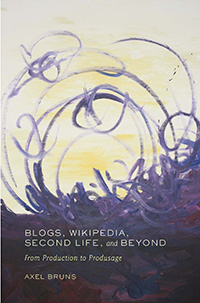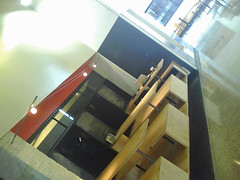Yay - Sonic Synergies: Music, Identity, Technology and Community, a book collecting the best papers from the eponymous 2003 conference in Adelaide, is finally out (if apparently only in hardcover, for almost US$100)...
My chapter in the book deals at its core with the 2002 Webcasting wars in the United States - a protracted and complex conflict between the recording industry and various groupings of large, medium, and small Webcasters each pursuing their own agendas, which was not so much resolved as put on hold by the eventual intervention of a few members of Congress concerned about the deleterious …



 As we get closer to the release date for my upcoming book [weblink:475], I'm now starting to deal with the tail end of the production process - finalising the cover image and organising the back cover text.
As we get closer to the release date for my upcoming book [weblink:475], I'm now starting to deal with the tail end of the production process - finalising the cover image and organising the back cover text. 












